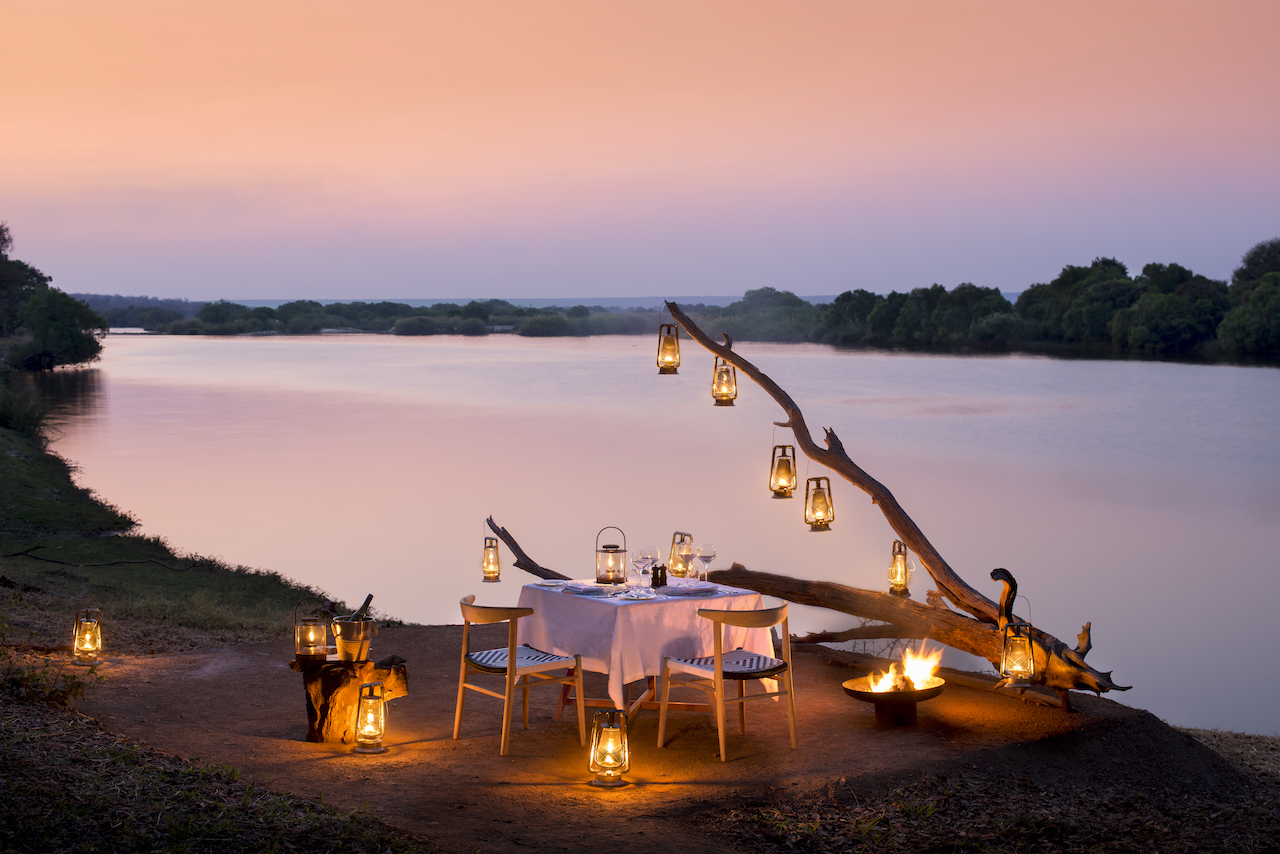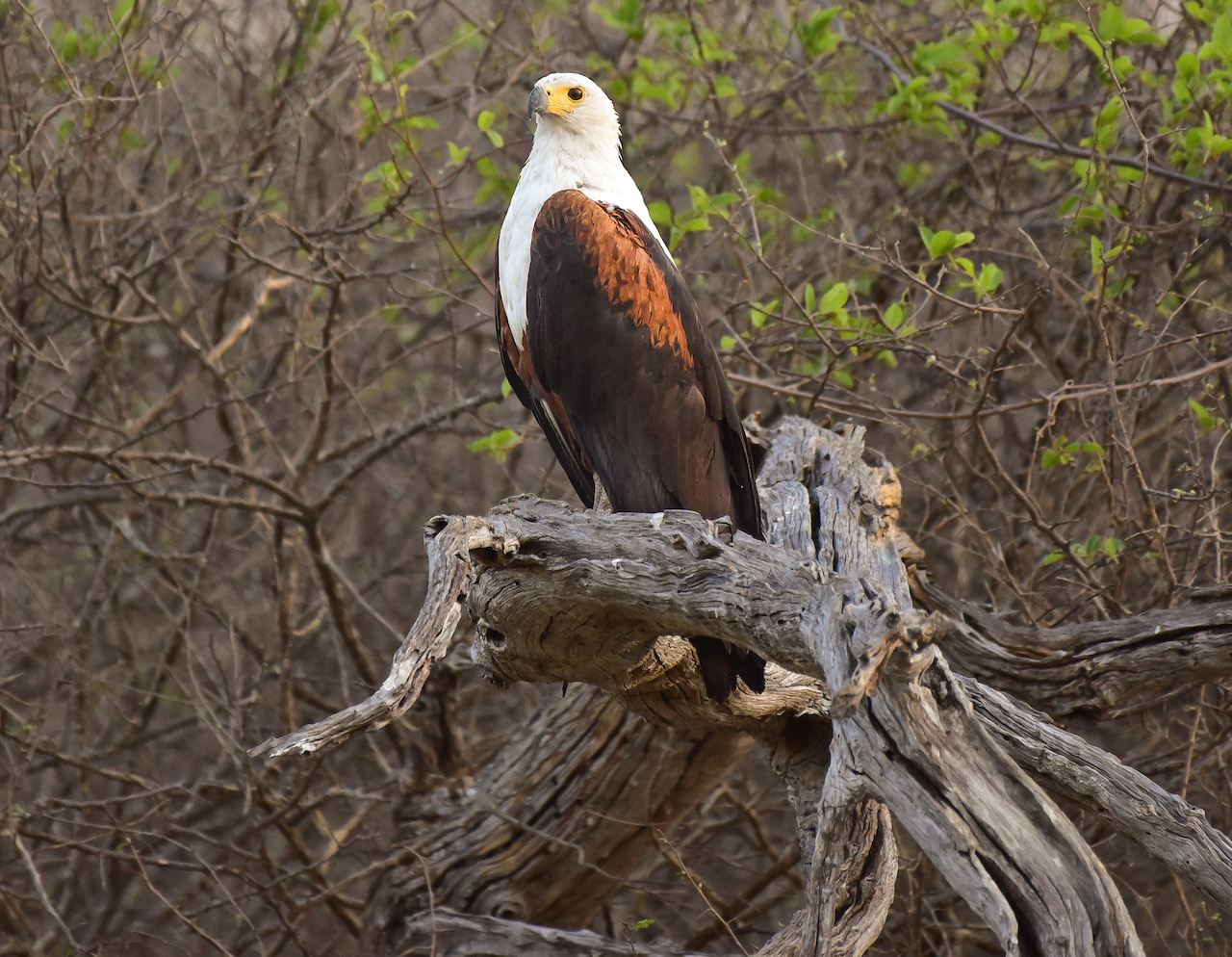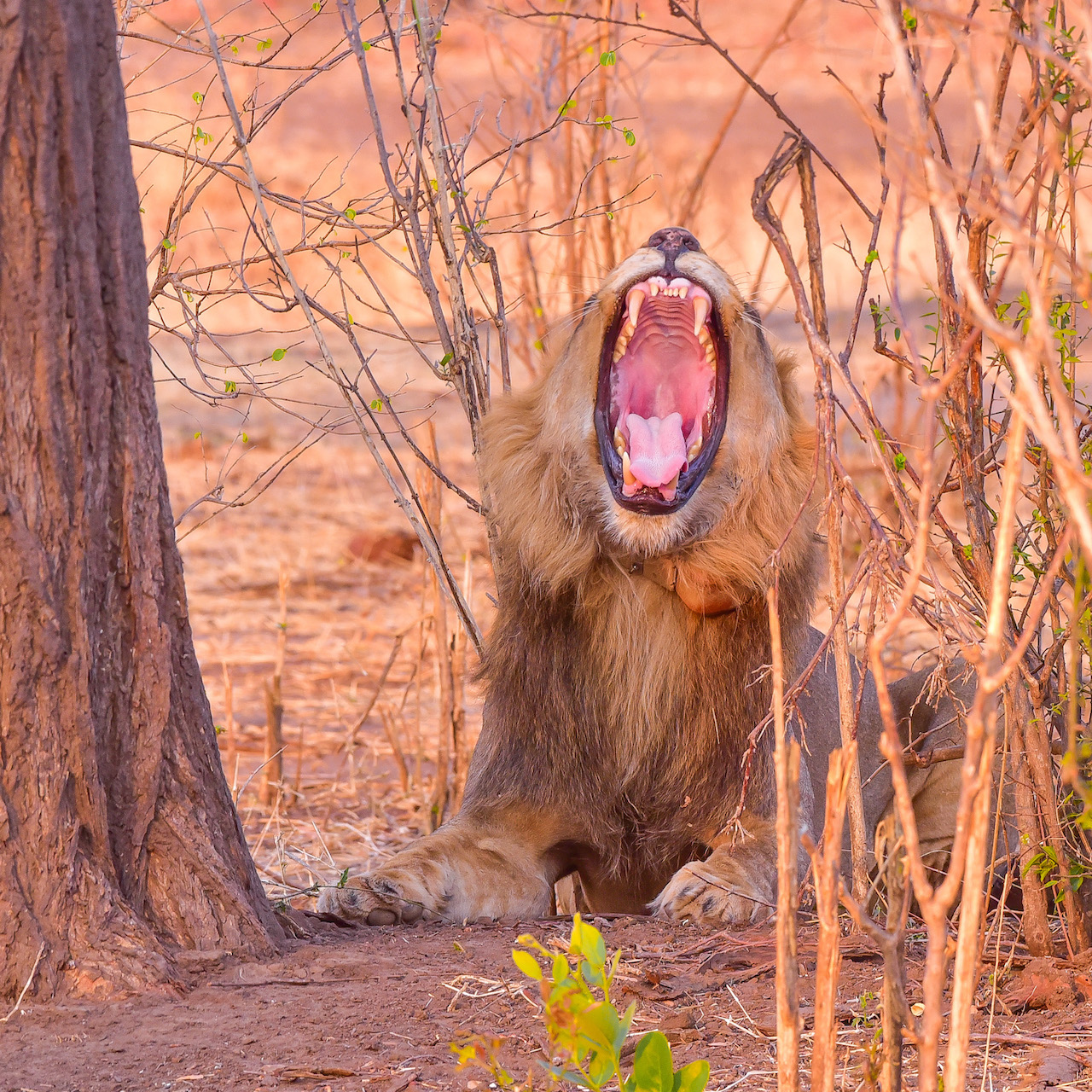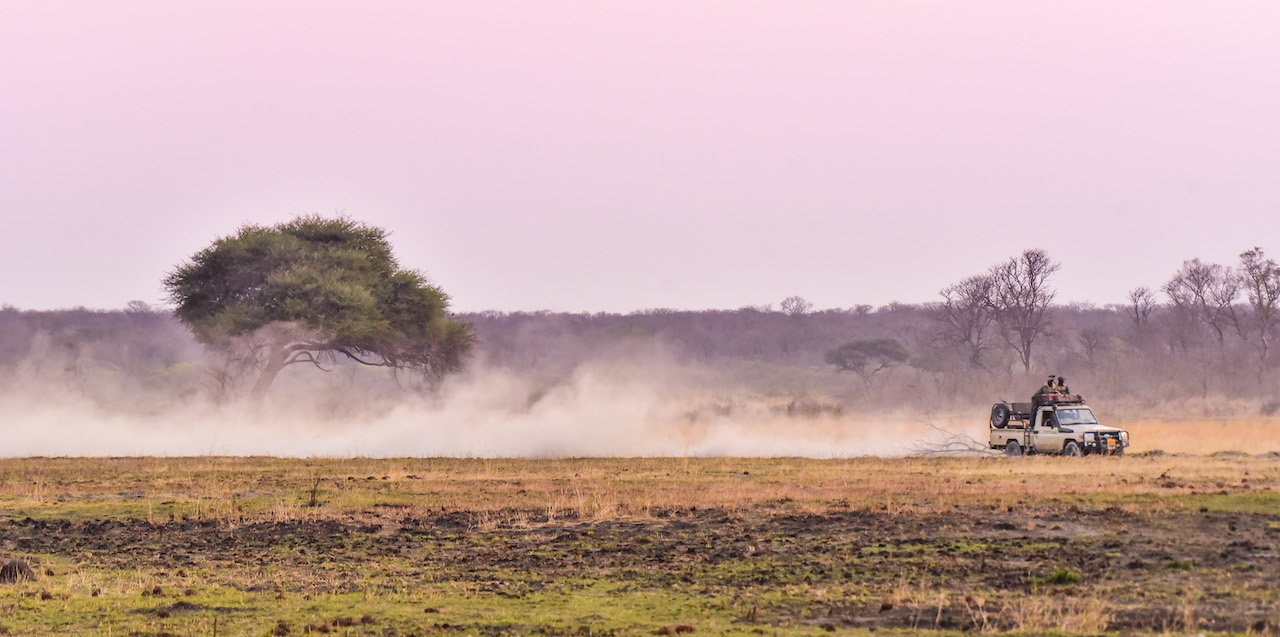Matetsi Victoria Falls, a new luxury safari camp in Zimbabwe’s west, is the sign of things to come for one of Southern Africa’s most challenged destinations, discovers Nick Walton.
There are times on every safari when you find yourself holding your breath in anticipation. It might be tracking a female lion on the hunt, or a close encounter with a den of hyena cubs. There are also moments when you let that breath out and become part of the scene unfolding around you, when you simply sit back, soak it in, and enjoy your role as a distant spectator of a spectacular wildlife show. Our moment with the elephants of Matetsi is just such an occasion.
It’s late afternoon and the sun has transformed from white-hot to pink zinfandel, mellowing the landscape and casting the scattered clouds in scarlet. We’re on a broad plain fringed by shallow hills and light forests, a 20-minute drive from the beautiful, one-year-old Matetsi Victoria Falls, the newest game camp to open in western Zimbabwe. A herd of half a dozen elephants is meandering its way from watering hole to watering hole. A pair of male lions watch on from a distance, the last rays of sunshine catching the gold of their sleek coats. The elephants stride with infinite grace, their slow, steady, resolute steps sending puffs of dust into the air. In their tracks Guinea fowl scurry, pecking and scratching at the soil like ill-tempered grounds keepers.
After decades of political turmoil and economic freefall, Zimbabwe isn’t on everyone’s safari radar – but it should be. Despite the corruption of the country’s government and the controversial decisions it makes (including the recent sale of baby elephants to zoos in China), safari tourism has a hugely beneficial impact on the people of this most troubled of southern African nations, and the recent departure of prudent Robert Mugabe could be the catalyst the troubled nation has been waiting for. The new US$150 million Victoria Falls Airport, which allows for greater connectivity and captures some of the tourism spend from neighbouring Zambia, and the opening of new safari camps like Matetsi, each of which comes with its own conservation initiatives and employment opportunities, heralds a new era for Zimbabwe, one that will not only help its people but also the wildlife many of us travel thousands of kilometres to see.

“The private sector is vital to conservation efforts, as well as the economy,” says my guide Milton as we climb out of our covered long wheel base Land Rover, the elephants sauntering away into the growing dusk. “Sometimes it feels like Harare is a very long way from the bush.” As we talk, our driver and tracker Trust sets up a card table and opens a cooler to reveal the essentials of sunset on the African plains: gin, tonic water, lemon peel and ice. It’s the perfect way to bring a little civility to such wild landscapes.
Located in a 50,000-hectare private concession adjoining the Zambezi National Park that includes 15 kilometres of Zambezi River frontage, the Kerry van Leenhoff-designed Matetsi Victoria Falls is the country’s first truly contemporary lodge and thus the modern face of the Zimbabwe safari experience. An open-facaded main lodge building boasts an elegant lounge and a restaurant with riverside dining under a canopy of mangosteen trees. My suite also looks out to the river, and features a cathedral-esque bathroom with soak tub and outdoor shower, chic furnishings, works by Zimbabwean-born artist Helen Teede, and a plunge pool that proves popular with resident baboon troops. It’s a world away from my preconceptions of Zimbabwe.
Only 40 kilometres from the Unesco-listed Victoria Falls, the largest in Africa, Matetsi is well positioned for Zimbabwe’s new fortunes. Sold as two separate lodges of nine suites a piece (there’s also a standalone house that sleeps eight), Matetsi has everything you’re looking for in a safari. There are elephants, graceful giraffes, lumbering buffalo, and prides of lions. After our gin and tonics we spot hyena cubs with the Land Rover’s red-filtered spotlight, and need to look out for elephants passing through the camp on their way to the river as we retire for the night.

Hippos soak in the shallows of the Zambezi River, while African fish eagles soar high above, during an early morning guided cruise on the mighty waterway. Milton points out islands that shift with the rains, and in the distance, local fishermen in their dugout canoes skirt the powerful currents. A squadron of plump Egyptian geese swoop down and race past, just inches from the water. I’m especially enthralled by the birds that call the Matetsi home. There are sleek western marsh harriers, and vibrant greater blue eared starlings, shy cape turtle doves, mesmerising lilac breasted rollers, and bold, crimson breasted shrikes that stand out against the golden grasses of the savannah. One afternoon, in the shade of acacia trees, we spy curious looking southern ground hornbills seeking shelter from the sun, their red bills a stark contrast to their coal black feathers.
Of course, there’s plenty to do when you’re not on game drives or river cruises. Guests can grab a book and while away an afternoon on their suite’s terrace, from where it’s easy to spy gangs of warthogs trotting on the river banks. There’s also a blissfully cool lap pool and an extensive wine cellar hidden away beneath the main lodge, and a range of included excursions, including a tour to the Victoria Falls.
One warm night Milton leads us to a riverside clearing where the dinner tables are lit by hurricane lamps and the camp’s chefs are cooking up a feast on a coal barbeque. Under a breathtaking canopy of stars, and to the roaring of the river rapids, we wine and dine, although always with one eye to the edges of the clearing, least we become the main course.

However, Matetsi Victoria Falls is more than just another luxurious African retreat. Poaching still takes place in Zimbabwe (though guides are quick to blame neighbouring Zambia) as does illegal hunting and tourism is the only force that can curb the destruction. Matetsi owner John Gardiner and his team have worked hard to draw back the game, including zebra, elephants, giraffe, kudu and rare sable antelope, funding anti-poaching squads and drilling bore holes to bring life-giving water to the surface. It’s hoped that camps like Matetsi will also breathe new life into Zimbabwe’s struggling economy and in doing so, place the country firmly on the bucket lists of safari goers, where it should be

